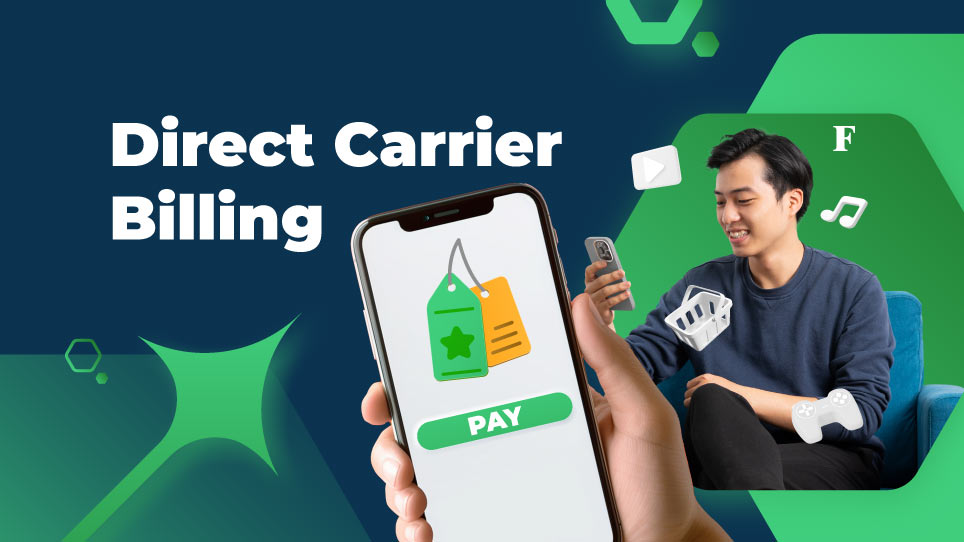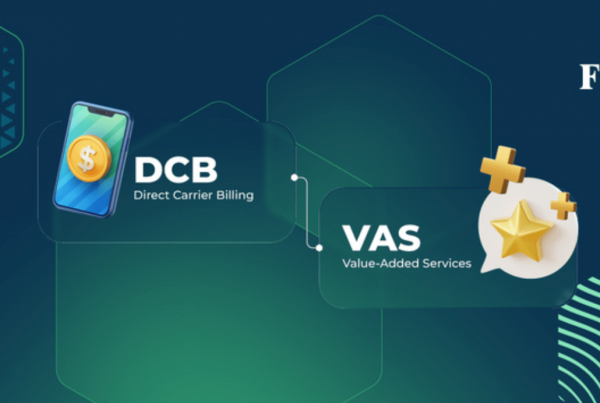
The mobile payment landscape has evolved rapidly in recent years. It offers consumers various options to make seamless transactions using their smartphones. Among these methods, Direct Carrier Billing (DCB) has gained popularity as a convenient and accessible way to pay for digital goods and services. In this article, we will explore and compare Direct Carrier Billing with other prominent mobile payment methods. We will look into their respective features, advantages, and limitations.
Direct Carrier Billing (DCB)
Direct Carrier Billing, often referred to as mobile billing, allows users to make purchases and pay for them by charging the cost directly to their mobile phone bill. It can also cater to deducting it from their prepaid balance. DCB is widely used for digital content. It also includes app purchases, in-app transactions, and subscriptions to streaming services.
Advantages of DCB
- Accessibility: DCB is highly accessible, requiring only a mobile phone and a cellular network connection
- Inclusivity: DCB doesn’t rely on traditional banking systems, making it inclusive for users without access to credit cards or bank accounts.
- Convenience: Users can complete transactions with just a few taps, without the need for additional authentication processes.
Disadvantages of DCB
- Limited Transaction Size: DCB transactions often have limits on the amount that can be charged, thereby making it less suitable for high-value purchases.
- Compatibility Issues: Not all digital services and merchants support DCB, limiting its usability in certain contexts.
- Lack of Refund Mechanism: Refunding transactions made through DCB can be challenging, and some service providers may not offer a straightforward refund process.
Mobile Wallets
Mobile wallets, such as Apple Pay, Google Pay, and Samsung Pay, store users’ credit/debit card information securely on their smartphones. These wallets facilitate contactless payments at supported merchants, both online and offline.
Advantages of Mobile Wallets
- Security: Mobile wallets employ advanced security features like biometric authentication and tokenization for secure transactions.
- Versatility: Mobile wallets can store multiple payment methods and loyalty cards, providing users with a versatile payment solution.
- Contactless Payments: Mobile wallets enable quick and contactless payments, especially in physical stores equipped with Near Field Communication (NFC) technology.
Disadvantages of Mobile Wallets
- Dependency on Technology: Mobile wallets heavily rely on smartphones and may not be accessible to users with older devices or in areas with limited network connectivity.
- Security Concerns: While mobile wallets implement robust security measures, the digital nature of transactions introduces potential risks such as hacking and identity theft.
- Limited Acceptance: While acceptance is growing, not all merchants and service providers support mobile wallet payments. Particularly in remote areas.
Credit/Debit Card Payments
Traditional credit and debit card payments remain a ubiquitous method for online and offline transactions. Users enter their card details during the checkout process to complete a purchase.
Advantages of Card Payments
- Global Acceptance: Credit and debit cards are widely accepted globally, making them suitable for international transactions.
- Credit Options: Credit cards offer a line of credit, allowing users to make purchases and pay later, while debit cards deduct funds directly from the linked bank account.
- Rewards Programs: Many credit cards come with rewards programs, offering users benefits such as cashback, points, or airline miles.
Disadvantages of Card Payments
- Fraud Risk: Credit and debit cards are susceptible to fraud, with incidents such as card skimming and unauthorized transactions posing security threats.
- High Transaction Fees: Some merchants charge additional fees for card transactions, and users may incur currency conversion fees for international purchases.
- Dependency on Infrastructure: Card payments rely on a network of banks and financial institutions, and technical issues or maintenance can temporarily disrupt transactions.
Direct Carrier Billing Advances Those Without Traditional Banking Access
Each mobile payment method has its unique advantages and considerations, but the narrative subtly favors Direct Carrier Billing. Due to its pronounced accessibility and convenience, particularly beneficial for users without traditional banking access.
While acknowledging the security features and versatility of mobile wallets and the global acceptance and credit options offered by credit/debit cards, the emphasis leans towards the advantages of Direct Carrier Billing. The choice among these methods depends on user preferences, security concerns, and the specific context of the transaction.
Anticipated advancements in technology are expected to further enhance the appeal of Direct Carrier Billing, making it even more seamless and user-friendly in the evolving landscape of mobile payments.
To learn more about how you can integrate direct carrier billing with your business, visit www.dcbpays.com or contact us at [email protected].



